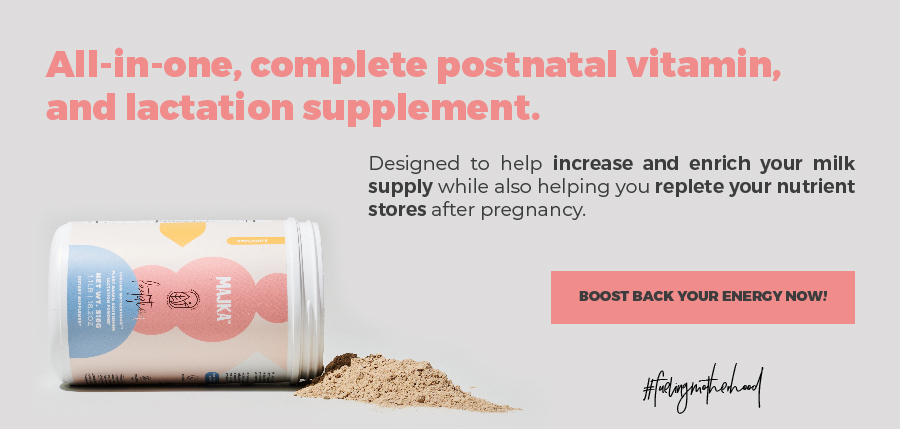
Having a baby can bring many changes to your body, including hormonal movements. Childbirth can also bring psychological and social changes.
In this article, we´ll talk about two medical conditions that could show up after (or even before) giving birth.
Postpartum Depression
First of all, we want to distinguish between postpartum depression and baby blues, as they are two different things.
“Baby blues” are mood swings that occur the first 2 to 3 days after delivery and can last up to two weeks. Individuals who experience the “blues” may exhibit crying spells, sadness, irritability, feelings of being overwhelmed, poor concentration, trouble sleeping, and/or low appetite.
Postpartum depression, on the other hand, lasts longer and can display more intense symptoms depending on the person and the intensity of the depression. Some of these symptoms are: withdrawing from your family and friends, insomnia, overwhelming tiredness, irritability, anger, fear of being a bad mother , shame, guilt, inadequacy, reduced ability to think clearly, thoughts of harming yourself or your baby, anxiety and panic attacks, etc.
These symptoms tend to show up in the first few weeks after giving birth, and last up to a year or more if not treated.
After giving birth, your body has several chemical changes that may cause your neurotransmitters to operate differently. This can cause depression. The likelihood of experiencing depression can be higher if someone in your family was diagnosed,but more research is being done on this topic.
Having a baby causes big changes not only in your body, but in your routine. It may also effect relationships and finances, which can trigger symptoms.
An important thing to mention here is that having baby blues and/or postpartum depression doesn’t mean that there is something wrong with you or that you don´t love your baby. It means that you have a medical condition that needs appropriate treatment to help you feel better and enjoy this season of life.
Postpartum Anxiety
Postpartum anxiety is when you feel severe anxiety during the postpartum period. It’s normal to have worries after becoming a mom. When these worries become constant, irrational, seem out of control and interfere with your daily life, you are most likely experiencing postpartum anxiety.
Some moms that experience postpartum anxiety stay awake all night checking on their baby and feel terrified to leave him/her with someone else even for a minute.
Some symptoms that you may experience if you have postpartum anxiety are: increase in heart rate, nausea, muscle tension, trouble sitting still or relaxing, feelings of short breath and loss of appetite, constant thought of worse-case scenarios, obsessing over things that are unlikely to happen, and/or forgetfulness. These feelings may cause you to avoid certain situations that you didn’t avoid before, as you are now overly cautious and may feel the need to control every situation.
Postpartum anxiety could be caused by a change in your hormones, lack of sleep, or by the overwhelming feelings of responsibility that come with having a baby.
These symptoms can start immediately after delivery or even months after your baby is born. It is important to remember it is a medical condition. Be kind to yourself and get the professional help you need in order to feel better and enjoy the bond with your baby.
Difference between Postpartum Anxiety and Postpartum Depression
These two conditions may sometimes merge together or even share some symptoms, such as: disrupted sleep, or feelings of being afraid, etc. Though they may share some symptoms, they are two seperate conditions::
- Postpartum depression involves: excessive sadness, trouble finding joy with your baby, feeling unable to take care of him/her; lack of interest, low energy, etc.
- Postpartum anxiety involves: excessive worrying, panic, feelings of being overwhelmed, but not sadness.
Treatments for Postpartum Anxiety and Depression
- Psychotherapy or “talk therapy”: talking about your feelings with a mental health professional and finding new ways to cope has been proven to be of great help for both conditions.
- Medication: depending on your case, your doctor may prescribe antidepressants (which can work for both conditions). This could be an anti anxiety medication or something to treat insomnia.
Though these treatments have been proven to help, there is still ongoing research to help with these conditions.
It is important to maintain your treatment as recommended by your health care professional. Discontinuing before the recommended time may cause a relapse.
Does medical treatment affect breastfeeding?
It is a fact that medicine will often go to your breast milk, so talk to your doctor regarding your specific case.
The good news is that even as antidepressants do pass through your milk, they have shown little risk of side effects on your baby.
*Do not consume any medication that your doctor has not prescribed.
Is there a natural treatment?
Postpartum depression and postpartum anxiety require complementary help along with the recommended treatments! Do keep in mind, however, that this should never replace the course of treatment prescribed by your healthcare provider.
Some additional things that you can do to cope with postpartum depression and anxiety are:
- Maintain a healthy diet.
- Include physical activity to your day (a walk with your baby could be a good choice).
- Try to get good rest.Ask for any help that you need. You don’t need to take care of your baby alone.Lean on your partner and other people around you as well.
- Make time for yourself to do something that you enjoy.
- Be kind to yourself. You are dealing with a lot of changes, so don’t push yourself to do everything perfectly.
- Keep your loved ones close.
Keep in mind that the healthier you are, the better you will be for you and your baby. Caring about yourself does not make you selfish! Being kind and loving to yourself is the best way to start getting all the help that you need!
In Breastfeeding 101, we hope this information has helped you to learn more about what postpartum depression and postpartum anxiety are, and how to deal with them.
We are always happy to have you here, and we’d love to invite you to follow our content to learn more about these topics.
If you want to learn more about postpartum depression and anxiety, here are some of the sources that made this article possible:
- Anxiety Disorders I American Psychiatry Associations
- Is It Postpartum Depression or Postpartum Anxiety? What’s The Difference? I MGH Center
- Postpartum anxiety is invisible, but common and treatable I Harvard Health Publishing
- Postpartum anxiety I Cleveland Clinic
- Postpartum depression I Cleveland Clinic
- Postpartum depression I Mayo Clinic
- Postpartum depression and anxiety I ABCT
- Treatment of postpartum depression: clinical, psychological and pharmacological options I National Library of Medicine
- Treatment – Postnatal depression I NHS
- What is Peripartum Depression (formerly Postpartum)? I American Psychiatry Association
Avery Reckers







1 Comment